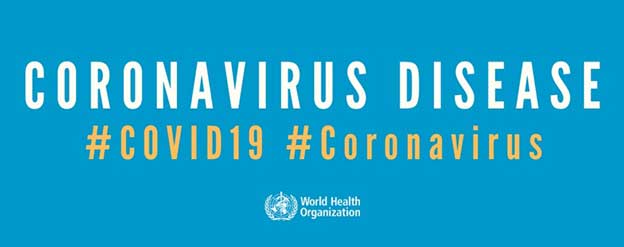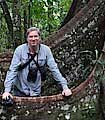'We Might Have a Covid-21 or Covid-22 Coming Our Way'

NEW YORK, Dec 23 (IPS) - Cristián Samper is working for the Wildlife Conservation Society, an organization that concerns itself with the health of wildlife all over the globe. And he warned --even before the Covid-19 pandemic – about the dangers of a viral pandemic.
Excerpts from the interview:
Q: Now how exactly is wildlife health linked to the spread of Covid-19?
A: We have to remember that Covid-19, like many other diseases, is a zoonotic disease. We are a species that shares the planet with millions of other species and all of them have viruses. As a matter of fact, we estimate there are probably more than 700,000 viruses with zoonotic potential out there and, from time to time, some of those viruses will switch animal species and sometimes jump over to humans.
We have been interested in wildlife health for a long time because of our work in the conservation of endangered species. We have to remember that almost three-quarters of the viral diseases that we have acquired as humans originate in animals. Understanding the numerous human-wildlife interfaces is critical in terms of preventing future pandemic diseases as well.
Q: At a conference in October last year, your organization revised the One Health approach, which you call the Berlin Principles. What is this more holistic approach to health about?
A: In 2004, we organised a conference in New York, where we brought together communities that usually don’t interact. You’ve got the whole wildlife and conservation groups, and you’ve got a whole human health and medical community. Most of the time we don’t talk to each other.
Out of that meeting came a set of what at that point were called the Manhattan Principles, which were introducing this concept of One Health.
The good news is that the general approach of recognising the linkages between human health, wildlife health, livestock health and ecosystem health have gained traction. We see it being used more and more by different groups, including the World Health Organization.
But we did feel it was important to update these principles because so much has changed over time, including the UN Sustainable Development Goals (SDGs). That led to the conference that we held a year ago in Berlin.
We brought over 250 experts from these different communities together and that’s where we adopted the Berlin Principles. They are ten core practices that we, as a society, need to embrace to be able to recognise these interlinkages.

Q: Your organization recently published a paper on how ecological degradation more broadly increases the risk of pandemics and viruses spreading. How is the way we treat nature more broadly linked to increased risks in that regard?
A: That’s correct. One of the things that we are advocating is the importance of the protection of what we call intact forests and intact ecosystems. Once you go into an area and you start degrading them or opening them up, you’re disrupting the whole equilibrium between the various species.
As you increase the rate of deforestation in some areas and people move in there, you’re increasing the human-wildlife interface. The likelihood that humans are coming into contact with different kinds of animals increases dramatic. ally
So, one of the best things we can do is protect some of these mainly intact ecosystems out there – forests and other systems. That would not only help with conservation but it would reduce human-wildlife interface – and therefore reduce the likelihood of pathogen spillovers with pandemic potential.
Q: In the very specific case of Covid-19, what should have happened to prevent the virus from spreading in the first place?
A: This is directly tied to the issue of commercial wildlife trade and wildlife consumption. WCS recommends stopping all commercial trade in wildlife for human consumption (particularly and of birds and mammals) and closing all such markets. Rigorous enforcement of existing laws, regulations, and international treaties that deal with wildlife trade and markets is critical necessary, but this is simply not enough.
A new paradigm is needed if we are to avoid a pandemic such as the one we are experiencing today. Beyond that, you need to monitor better. You need to know what viruses are out there and you need to clean up your supply chains the best we can.
The issue is, right now as we speak, there are many other coronaviruses out there in wildlife being consumed by humans – and any one of them could jump. So, we might have a Covid-21 or Covid-22 coming our way and we need to strengthen the surveillance systems, reduce deforestation and stop all commercial trade in wildlife for human consumption (particularly of birds and mammals).
Q: China and Vietnam have actually taken steps to ban wildlife trade and markets. So, have the lessons from the coronavirus pandemic been learned at least in some parts of the world?
A: I’m hopeful. We were encouraged that China actually did put in place a temporary ban on wildlife markets when the Covid-19 outbreak happened.
And the good news is that China has now taken steps to permanently close a lot of the wildlife markets for human consumption. Now, there are some important loopholes in this. There are still issues around Chinese medicine and some other elements that are, of course, very important cultural traditions and practices. That’s something that has to be dealt with separately.
Vietnam also made an announcement in this regard. The Prime Minister of Vietnam said that they want to close the wildlife markets. The information we have is that that hasn’t really translated into action yet. We’re hopeful that it may but clearly the signal at the top was important. There are other countries, like Indonesia and others in the region, that are considering this right now.
And let me just mention one other thing that’s important. We’ve made an important distinction in our statements and policies. We’re specifically talking about commercial markets for wildlife for human consumption. We understand that wildlife is very important for subsistence and local livelihood in many communities.
The data indicates that if you’re directly harvesting some wildlife for local consumption in the wild, the likelihood of transmission is much, much lower. The problem is when that wildlife is taken to a supply chain, to markets into the cities, that’s where the number of viruses increases dramatically. So, we don’t propose a blanket ban and certainly we don’t intend to negatively impact local livelihoods in the wild areas.
Q: That perfectly leads me to my last question. In a recent piece, you wrote that “protection and conservation” should not be seen “as a competing interest to economic and social development”. How should we then understand the relationship between the two?
A: There’s always been this this false dichotomy of either conserving something or using it. What we’re realising is that nature provides so many services to us, whether it’s clean water, clean air, food. We all rely on nature, whether it’s directly using it in the wild or by the products and the goods and services that we all use every day.
But the challenge is that many of these ecosystem services are not valued by markets. That’s what’s led to their destruction, their mismanagement.
Issues like keeping forests intact is important in terms of preventing pathogen spillovers at human-wildlife interfaces and reducing the likelihood of pandemics. We have more and more science showing that mature forests are also capturing carbon at a very fast rate, so they’re actually helping combat climate change. There are so many dimensions around this, and we’re just starting to pull together all these pieces of the value added by nature.
Conservation not only impacts livelihoods but helps with broader geopolitical issues. For example, one of the things that we’ve been advocating very strongly is to strengthen protected areas in the Sudano-Sahel region in Africa, as anchors of good governance. This will also help improve governance and build communities that are much more stable.
This way you’re going to help prevent migration, you’re going to reduce the impacts of climate change to most of these people and you’re going to reduce political conflict. All of this stems the wave of refugees that end up in Europe and other places. So, investing in nature, investing in conservation and supporting local livelihoods is a way of dealing with issues of security and migration too.
Source: International Politics and Society (IPS).
Launched in January 2017, the online IPS journal highlights global inequality and brings new perspectives on issues such as the environment, European integration, international relations, social democracy and development policy. Based in the Friedrich-Ebert-Stiftung’s (FES) Brussels office, IPS aims to bring the European political debate to a global audience, as well as providing a platform for voices from the Global South. Contributors include leading journalists, academics and politicians, as well policy officers working throughout the FES’s global network.
Follow @IPSNewsUNBureau
Follow IPS New UN Bureau on Instagram
© Inter Press Service (2020) — All Rights Reserved. Original source: Inter Press Service
Where next?
Browse related news topics:
Read the latest news stories:
- Make America Great Again? Not by This Administration Wednesday, April 02, 2025
- Hunger and Heightened Insecurity Pushes Sudan to the Brink of Collapse Wednesday, April 02, 2025
- Regime Obstructs Aid, Orders Air Strikes in Quake-hit Myanmar Wednesday, April 02, 2025
- Collapse of Gaza Ceasefire and its Devastating Impact on Women and Girls Wednesday, April 02, 2025
- Bangladesh Chief Advisors China Tour Cements Dhaka-Beijing Relations Tuesday, April 01, 2025
- Greenland: A Brief Chronicle of a US Historical Interest Tuesday, April 01, 2025
- UN Staff Put on Alert -- as US Visa Holders Face Threats and Deportation Tuesday, April 01, 2025
- Lebanon: UN expresses deep concern over latest Israeli airstrikes, in call for restraint Tuesday, April 01, 2025
- DR Congo: Surging violence as armed groups target civilians in the east, Human Rights Council hears Tuesday, April 01, 2025
- Sudan on brink of famine as fighting ravages Darfur, UN warns Tuesday, April 01, 2025
Learn more about the related issues: